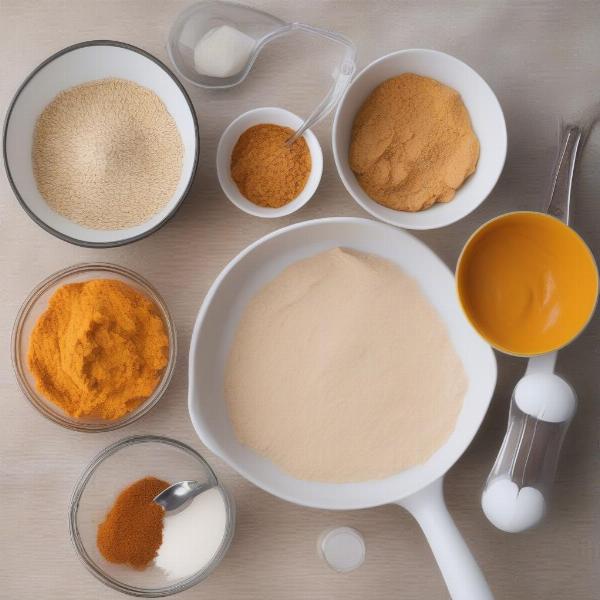Choosing the right snacks for a dog with a sensitive stomach can be tricky. Many commercial treats contain ingredients that can trigger digestive upset in sensitive pups. This article will guide you through selecting the best snacks for dogs with sensitive stomachs, ensuring your furry friend enjoys tasty treats without the tummy troubles.
Understanding Food Sensitivities in Dogs
Food sensitivities differ from food allergies. While allergies involve the immune system, sensitivities affect the digestive system. Symptoms can include vomiting, diarrhea, gas, and itchy skin. Identifying the specific ingredient causing the problem is key to managing a sensitive stomach. Common culprits include beef, chicken, dairy, wheat, and corn.
Choosing the Right Snacks for Sensitive Dogs
When choosing snacks for dogs with sensitive stomachs, look for limited ingredient treats. These treats should contain easily digestible proteins and carbohydrates. Avoid artificial colors, flavors, and preservatives, as these can exacerbate sensitivities. Single-protein treats, such as those made with lamb, fish, or turkey, are excellent choices. Always check the ingredient list carefully.
best dog treats for sensitive stomach
Homemade Treats for Sensitive Stomachs
Consider making your own dog treats. This gives you complete control over the ingredients. Simple recipes using ingredients like sweet potato, pumpkin, and plain cooked chicken or fish can be both healthy and delicious for sensitive dogs. Remember to avoid using any spices or seasonings that could upset your dog’s stomach.
Introducing New Treats Carefully
Even with the best intentions, a new treat can still upset a sensitive stomach. Introduce new snacks gradually. Start with a very small amount and monitor your dog for any adverse reactions. If everything seems fine, you can gradually increase the portion size.
 Ingredients for homemade dog treats for sensitive stomachs
Ingredients for homemade dog treats for sensitive stomachs
What to Avoid in Dog Treats for Sensitive Stomachs
Stay away from treats with common allergens like beef, chicken, dairy, wheat, corn, and soy. Also, avoid treats high in fat, as these can trigger pancreatitis in some dogs. Artificial sweeteners like xylitol are highly toxic to dogs and should never be given.
low fat treats for dogs with pancreatitis
Signs of a Treat-Related Upset Stomach
Be vigilant for signs of a treat-related upset stomach. These can include vomiting, diarrhea, gas, excessive licking of the lips, and decreased appetite. If you notice any of these signs, discontinue the treat immediately and consult your veterinarian.
“When choosing treats for a sensitive dog, simplicity is key,” says Dr. Emily Carter, DVM. “Focus on single-protein, limited-ingredient options, and always introduce new treats slowly.”
state fair corn dogs air fryer
“Homemade treats can be a great option for sensitive dogs,” adds Dr. Sarah Miller, a certified canine nutritionist. “It allows owners to control exactly what their dog is eating and avoid potential allergens.”
Conclusion
Finding the right snacks for dogs with sensitive stomachs requires careful consideration and patience. By choosing limited-ingredient treats, introducing new snacks slowly, and monitoring your dog for any adverse reactions, you can ensure your furry friend enjoys tasty treats without the tummy troubles. Always consult your veterinarian if you have any concerns about your dog’s diet.
best dog treats for sensitive stomachs
FAQ
- What are some good single-protein treats for sensitive dogs? Treats made with lamb, fish (like salmon or whitefish), venison, or rabbit are often good choices.
- Can I give my dog fruits and vegetables as treats? Yes, some fruits and vegetables, like cooked sweet potato, pumpkin, and bananas (in moderation), can be healthy treats for sensitive dogs.
- Are grain-free treats always good for sensitive stomachs? Not necessarily. While some dogs benefit from a grain-free diet, others don’t. Focus on limited ingredients rather than just grain-free.
- How can I tell if a treat is upsetting my dog’s stomach? Look for signs like vomiting, diarrhea, gas, excessive lip licking, or a decrease in appetite.
- Should I consult my vet before giving my dog new treats? It’s always a good idea to consult your vet, especially if your dog has a history of digestive issues.
- Are there any treats I should absolutely avoid giving my dog? Avoid treats with artificial sweeteners (xylitol is highly toxic), artificial colors and flavors, and common allergens like beef, chicken, dairy, wheat, corn, and soy.
- How many treats should I give my dog with a sensitive stomach? Treats should make up no more than 10% of your dog’s daily caloric intake. Start with small amounts and monitor your dog’s reaction.
ILM Dog is your trusted resource for expert dog care advice. We cover everything from breed selection and health care to training, nutrition, and grooming. Our aim is to provide practical, reliable information to dog owners worldwide. Whether you’re a new pet parent or an experienced owner, ILM Dog offers valuable insights into all aspects of dog ownership, including choosing the right products and accessories. Contact us at [email protected] or +44 20-3965-8624.